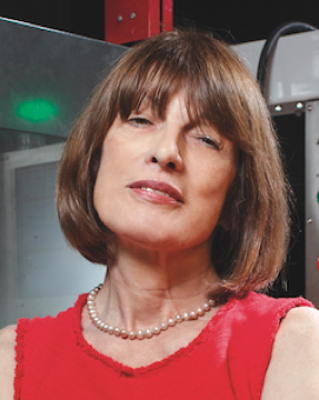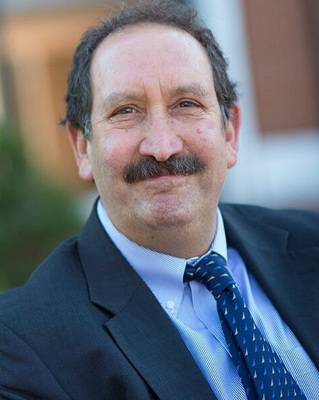Speakers
EMBC 2021 is putting together an exciting list of keynote speakers and theme keynote speakers

Gordana Vunjak-Novakovic
Opening Keynote Speaker
Gordana Vunjak-Novakovic is University Professor, the first engineer to receive this highest academic rank at Columbia University. The focus of her lab is on engineering functional human tissues for use in regenerative medicine and patient-specific “organs-on-a-chip” models of disease. She is well published and highly cited (h=131), has mentored over 150 trainees, and founded four biotech companies. She is a member of Academia Europaea, Serbian Academy of Arts and Sciences, National Academy of Engineering, National Academy of Medicine, National Academy of Inventors, International Academy of Medical and Biological Engineering, and the American Academy of Arts and Sciences.

James Moore Jr
Plenary Keynote Speaker
Prof. Moore received his Ph.D. from the Georgia Institute of Technology, followed by postdoctoral training at the Swiss Institute of Technology at Lausanne. Prior to coming to Imperial College, he was the Carolyn S. and Tommie E. Lohman ’59 Professor of Biomedical Engineering at Texas A&M University. In January 2013, he joined Imperial College as the Bagrit and Royal Academy of Engineering Chair in Medical Device Design in the Department of Bioengineering. Prof. Moore’s research interests include Cardiovascular Biomechanics, Stents, Implantable Devices, Atherosclerosis, and the Lymphatic System. His research focuses on the role of biomechanics in the formation and treatment of diseases such as atherosclerosis and cancer. His cardiovascular biomechanics work resulted in the development of two novel stent designs aimed at optimizing post-implant biomechanics for the prevention of restenosis, as well as new testing devices for implants that employ more physiologic mechanical forces. His research on lymphatic system biomechanics has provided unprecedented insight into the pumping characteristics of the system and the transport of nitric oxide, antigens, and chemokines in lymphatic tissues. He is currently developing two technologies for preventing and resolving secondary lymphedema, which typically forms subsequent to cancer surgery. Along with his funding from government, charity, and industry sources, Prof. Moore has received multiple patents for medical devices and testing equipment. Prof. Moore has also co-founded three startup companies.

Fei Fei Li
Plenary Keynote Speaker
Dr. Fei-Fei Li is the inaugural Sequoia Professor in the Computer Science Department at Stanford University, and Co-Director of Stanford’s Human-Centered AI Institute. She served as the Director of Stanford’s AI Lab from 2013 to 2018. And during her sabbatical from Stanford from January 2017 to September 2018, she was Vice President at Google and served as Chief Scientist of AI/ML at Google Cloud. Dr. Fei-Fei Li obtained her B.A. degree in physics from Princeton in 1999 with High Honors, and her PhD degree in electrical engineering from California Institute of Technology (Caltech) in 2005. She joined Stanford in 2009 as an assistant professor. Prior to that, she was on faculty at Princeton University (2007-2009) and University of Illinois Urbana-Champaign (2005-2006).
Dr. Fei-Fei Li’s current research interests include cognitively inspired AI, machine learning, deep learning, computer vision and AI+healthcare especially ambient intelligent systems for healthcare delivery. In the past she has also worked on cognitive and computational neuroscience. Dr. Li has published more than 200 scientific articles in top-tier journals and conferences, including Nature, PNAS, Journal of Neuroscience, CVPR, ICCV, NIPS, ECCV, ICRA, IROS, RSS, IJCV, IEEE-PAMI, New England Journal of Medicine, Nature Digital Medicine, etc. Dr. Li is the inventor of ImageNet and the ImageNet Challenge, a critical large-scale dataset and benchmarking effort that has contributed to the latest developments in deep learning and AI. In addition to her technical contributions, she is a national leading voice for advocating diversity in STEM and AI. She is co-founder and chairperson of the national non-profit AI4ALL aimed at increasing inclusion and diversity in AI education.
Dr. Li is an elected Member of the National Academy of Engineering (NAE), the National Academy of Medicine (NAM) and American Academy of Arts and Sciences (AAAS). She is also a Fellow of ACM, a member of the Council on Foreign Relations (CFR), a recipient of the 2019 IEEE PAMI Longuet-Higgins Prize, 2019 National Geographic Society Further Award, 2017 Athena Award for Academic Leadership, IAPR 2016 J.K. Aggarwal Prize, the 2016 IEEE PAMI Mark Everingham Award, the 2016 nVidia Pioneer in AI Award, 2014 IBM Faculty Fellow Award, 2011 Alfred Sloan Faculty Award, 2012 Yahoo Labs FREP award, 2009 NSF CAREER award, the 2006 Microsoft Research New Faculty Fellowship, among others. Dr. Li is a keynote speaker at many academic or influential conferences, including the World Economics Forum (Davos), the Grace Hopper Conference 2017 and the TED2015 main conference. Work from Dr. Li’s lab have been featured in a variety of magazines and newspapers including New York Times, Wall Street Journal, Fortune Magazine, Science, Wired Magazine, MIT Technology Review, Financial Times, and more. She was selected as a 2017 Women in Tech by the ELLE Magazine, a 2017 Awesome Women Award by Good Housekeeping, a Global Thinker of 2015 by Foreign Policy, and one of the “Great Immigrants: The Pride of America” in 2016 by the Carnegie Foundation, past winners include Albert Einstein, Yoyo Ma, Sergey Brin, et al.

Michael Miller
Plenary Keynote Speaker
Michael I. Miller is the Bessie Darling Massey Professor and Director of Biomedical Engineering at Johns Hopkins University. He is also co-director of the Kavli Neuroscience Discovery Institute.
As a biomedical engineer who specializes in data science, Miller is pioneering cutting-edge technologies in computational medicine to understand and diagnose neurodegenerative diseases. His research focuses on the functional and structural characteristics of the human brain in health and disease, including Huntington’s disease, Alzheimer’s disease, dementia, bipolar disorder, schizophrenia, and epilepsy. By developing new tools to analyze patient brain scans, derived from advanced medical imaging technologies, Miller aims to predict the risk of developing neurological disorders years before the onset of clinical symptoms. His lab is currently devising cloud-based methods to build and share libraries of brain images—and the algorithms used to understand them—associated with neuropsychiatric illness. Miller’s research is highly translational, and he has co-founded four start-up companies in the past decade.
Dr. Miller was appointed as one of 17 inaugural University Gilman Scholars in 2011. He has received numerous other honors, including the Herschel Ruth Seder Professorship and the National Science Foundation Presidential Young Investigator Award. He is an elected Fellow of the American Institute for Medical and Biological Engineering and the Biomedical Engineering Society. He has co-authored more than 200 peer-reviewed publications, as well as two highly cited textbooks on random point processes and computational anatomy. Dr. Miller’s research is highly translational, and he has co-founded four start-up companies in the past decade.
